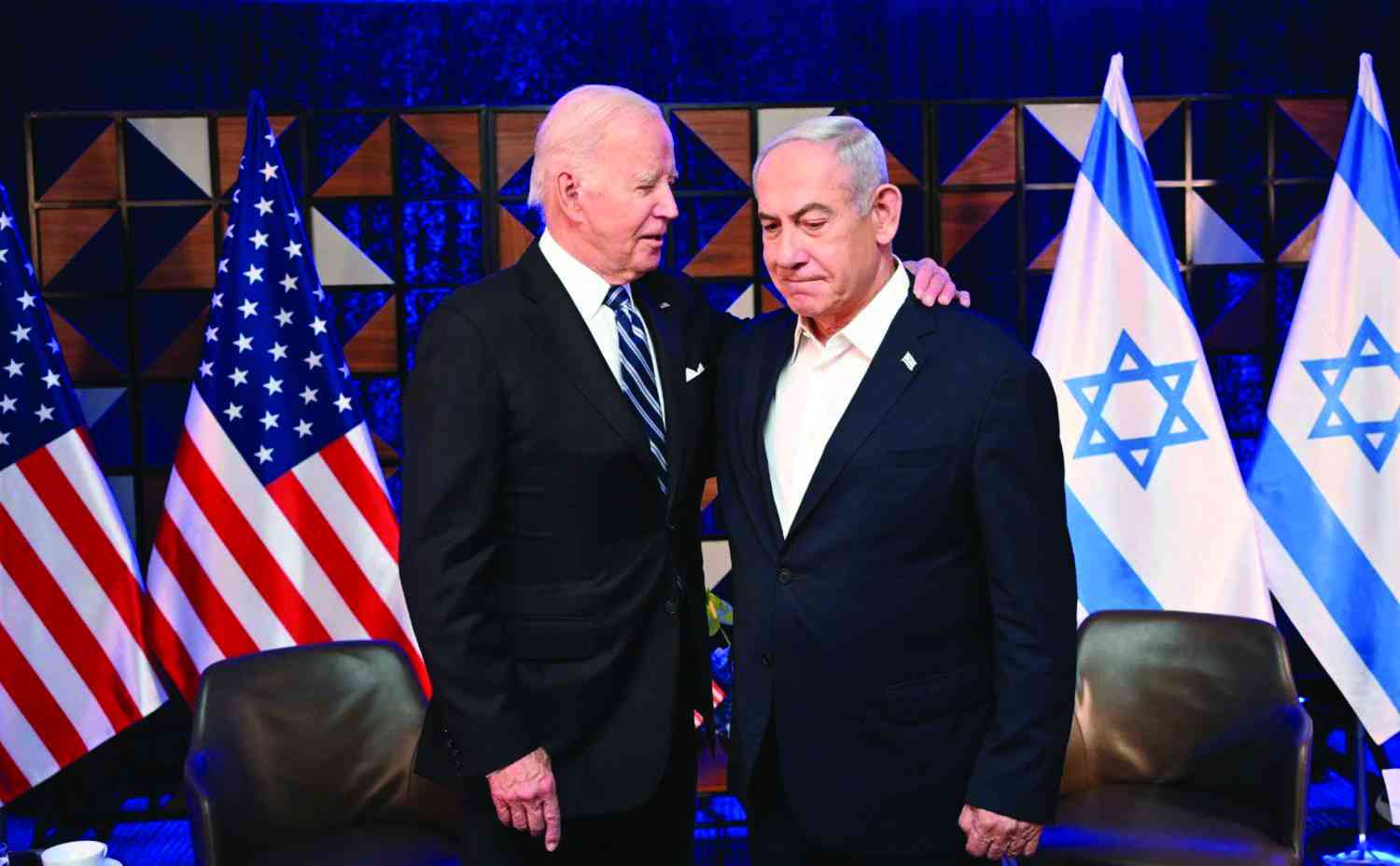
TWO weeks ago Iran, in response to Israel’s assassinations of the leaders of Hezbollah and Hamas, its most important allies in the Arab world, fired 181 ballistic missiles at Israel.
A big and prompt Israeli counterattack was expected, but at the time of writing it has still not happened. Why not?
There is one reason why Israel’s Prime Minister Benjamin ‘Bibi’ Netanyahu is reluctant to get involved in a tit-for-tat missile exchange with Iran, and an entirely different reason why he has not yet chosen the alternative of all-out war.
Bibi is leery of continuing with the measured approach because the Iranian ballistic missiles were much more effective than the early reports claimed.
Not only did a lot of Tehran’s missiles get through Israeli anti-missile defences but they were quite accurate (there is video of 32 Iranian missiles hitting the Nevatim air base in the Negev desert one after another).
Israel’s state-of-the-art F-35 fighters apparently all survived, safe in their concrete shelters, but similar ballistic missiles could inflict large casualties if aimed at crowded army bases or at civilian targets.
A protracted game of ballistic missile ping-pong between Israel and Iran would be costly for both sides, but harder on the Israelis.
Iran has enough of these missiles to keep going for months at the rate of two or three a day. That would have a big negative impact on popular morale and the economy in Israel, so it does not appeal to Netanyahu – and besides, he thinks he doesn’t have to play around with half-measures any more.
His surprisingly easy victories over Hezbollah may be transient, but they have emboldened him to believe that he now has an opportunity to “reshape the entire Middle Eastern order”.
That means at least destroying Iran’s entire nuclear technology programme, and perhaps bringing down the whole Iranian regime.
There is no evidence that Iran is making nuclear weapons, but it certainly does want a ‘threshold capability” to make them, if only to deter an attack by Israel’s own long-standing nuclear arsenal.
Netanyahu’s problem is that he cannot destroy Iran’s nuclear reactors and centrifuges and all the rest without a lot of American help.
Israel’s air force does not have enough refueling tankers to launch a mass raid at Iran’s numerous and deeply buried nuclear sites. It also lacks the special earth-penetrator bombs needed to destroy them.
With two aircraft carriers in the Gulf, Washington could fill those gaps – but that would mean going to war with Iran, which nobody in Washington wants.
Unfortunately for Bibi, there are no good reasons for the United States to risk a major war with Iran, and one huge reason not to do so in the final three weeks before the presidential election.
The race between Republican candidate Donald Trump and Democratic candidate Kamala Harris is so close – most opinion polls place both of them within the margin of error – that any major event could shift the outcome overnight. Finding themselves suddenly at war with Iran would startle and horrify Americans, and Trump would be the beneficiary.
This must be the unanimous view of Biden’s advisers, and they will have spent the past two weeks trying to stave off the threat of an Israeli attack on Iran that drags the United States into such a war.
You would think Washington can simply veto it, but alas not so. Soon-to-be-ex-President Joe Biden is still in office, and still in thrall not so much to ‘Bibi’ personally (he loathes him) as to his own antique and ultra-romantic vision of the Zionist enterprise.
So the pattern throughout the past year has been that Biden expresses his wishes (on food deliveries into Gaza, on protection zones, on a ground offensive in Rafah, on ceasefire terms, above all on escalation of the fighting).
Netanyahu acknowledges the US position, then does exactly as he wants instead — and in the end Biden approves or at least accepts his actions. And all the while the arms supplies keep coming.
Now Bibi wants a full-scale war on Iran, but Biden thinks it is a really bad idea and so do his advisers. Past performance says that Netanyahu will get his way, but he would be taking a big risk if he started a major war with Iran without US approval because to get the result he wants requires US military support.
So maybe his best bet is to keep stalling and see if Trump wins before he makes a decision on Iran. Or maybe he should start the war with Iran now because that will produce a Trump victory.
Decisions, decisions!
Dyer is a London-based independent journalist. His new book is titled Intervention Earth: Life-Saving Ideas from the World’s Climate Engineers. Last year’s book, The Shortest History of War, is also still available.






